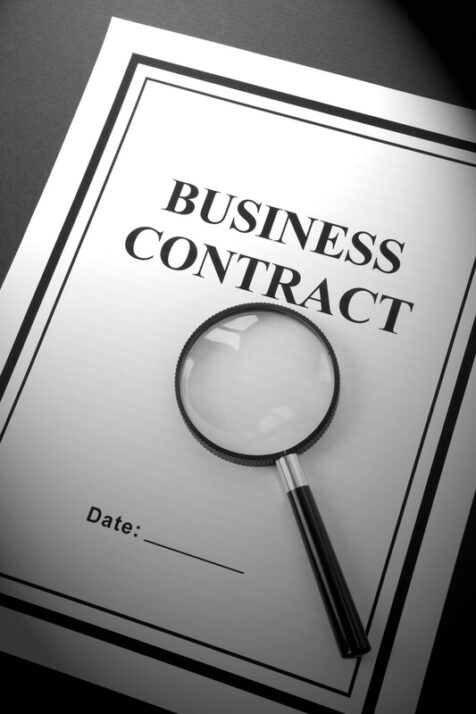Have you ever had a sinking feeling that comes with realizing there’s a severe problem with a contract? It’s a common scenario that can lead to expensive disputes, strained relationships, and legal battles.
But what if there was a way to avoid these pitfalls consistently? A way to make a strong business contract. You can have peace of mind your agreements are not just formalities. They can be powerful tools that protect your interests.
We will guide you through common contract mistakes and provide practical strategies to avoid them. Also, we’ll highlight how an attorney can be your staunch ally in crafting impeccable documents. So, let’s delve into these insights and equip you with the knowledge you need.
Common Business Contract Mistakes
Vague Language
The most common problem in contract law involves vague language or incomplete descriptions of obligations. Contracts must explicitly detail who does what, when they must do it, and to what standard. Ambiguities or lack of specifics can cause misunderstandings and lead to conflicts. Furthermore, you leave room for interpretation when these responsibilities are not transparent.
A practical way to prevent this error is to have a detailed scoping process. Identify all tasks and responsibilities before putting them into the document. However, you may want to consult a lawyer to avoid language you could not expect to leave legal wiggle room.
Missing Legal Names
It is also not unusual to have incorrect or missing legal names. This circumstance can happen if businesses use trade names or shorthand frequently. As a result, it is possible to declare the contract unenforceable.
A straightforward way to address this issue is to confirm the legal names from business registration records. Nonetheless, you want an expert to help when dealing with foreign entities. There can be more due diligence than usual to understand the equivalent forms and requirements.
Weak or Missing Dispute Resolution Clauses
The dispute resolution clauses can also be a stumbling block. This clause is vital because it establishes expectations for legal conflicts. Generally, they require an attempt at mediation or arbitration. Agreements that do not include this detail may get forced into litigation. This time in court is expensive, time-consuming, and often a last resort.
It’s advisable to consider the types of disputes that might arise and the best ways to resolve them. For example, any legal battles will likely involve highly technical matters. Also, consider including a multi-tiered dispute resolution clause. This section requires parties to attempt to resolve disputes through negotiation or mediation first before going to trial.
Ineffectual Payment Terms
Payment terms in business contracts can be more hazardous than you might think. A lack of clarity about these conditions is a prevalent issue. There could easily be disputes over one or more of the following topics:
- When payments are due
- Inconsistent billing practices
- Method of payment
- Resolution for late payments
A well-drafted contract should specify all these points to prevent disagreements over money matters. Hiring an attorney will minimize the chances of conflict with a customer or vendor escalating to a lawsuit.
Insufficient Contract Termination Details
Every contract should have a well-defined exit strategy for all parties. Thoroughly addressing these points provides predictability and control for everyone. But it can also be easier said than done to address these details:
- How and when a party can terminate the contract
- The notice period required
- The consequences of premature termination
Parties should consider potential scenarios and ensure they have representation within the agreement. Also, seeking professional legal advice can be instrumental in crafting unimpeachable contracts.
Best Practices to Avoid Contract Mistakes
A well-drafted contract should leave no room for interpretation. Every term and condition should have explicit definitions, and every obligation should be precise. This is especially important when dealing with international business.
It takes experience to achieve this goal properly. As a result, professional legal advice is invaluable. Business attorneys have expertise in more than the law; they understand how contracts can impact the long term. They will write agreements that foresee potential issues others cannot without legal training.
Furthermore, negotiation plays a crucial role in finalizing a contract. It also takes career training in this area to balance the best interest of everyone involved. Each party should clarify its understanding of the terms, raise concerns, and propose changes. This process allows you to uncover potential objections and avoid future complications.
Finally, regular contract reviews and updates are essential. Businesses, laws, and regulations must constantly evolve. The result is what was applicable may no longer be relevant or sufficient. Regularly updating contracts means you ensure they remain current, comprehensive, and legally sound.
Schedule a Consultation with a Business Lawyer
Avoiding mistakes in business contracts is pivotal for the smooth operation of any business. Though it can seem challenging, you don’t have to navigate this complex process unaided.
We can connect you with a professional that will ensure your contracts are error-free. Call us 24/7 at (866) 345-6784 or contact us through our website today!

